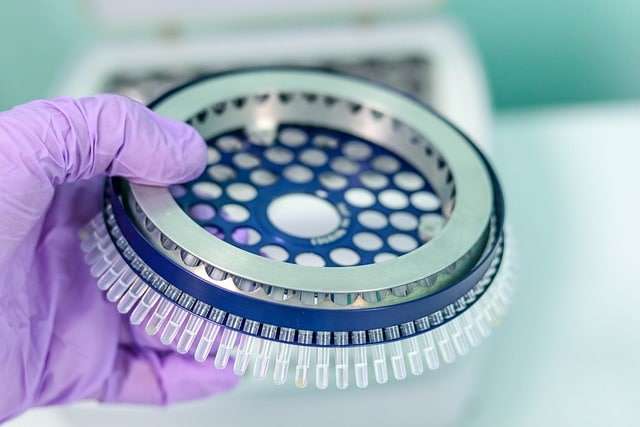Advancements in Healthcare through Bioengineerin

The multidisciplinary field of bioengineering, which combines biology, engineering, and technology, is still at the forefront of innovation, propelling improvements in environmental preservation, healthcare, and agriculture. Significant advances in recent times have profound effects on global sustainability programs, agricultural output, and human well-being.
Customized Healthcare Solutions
Bioengineering has made possible previously unheard-of breakthroughs in healthcare, such as customized treatment based on a patient’s genetic profile. Genetic manipulation has been transformed by methods such as CRISPR-Cas9 gene editing, which provide accurate and effective ways to change DNA sequences. Additionally, the advancement of organ-on-a-chip technology enables scientists to replicate the functioning of human organs in tiny models, hastening the hunt for new drugs and lowering the need for animal testing.
Precision Medicine and Personalized Treatments
The integration of bioengineering techniques into medical practice has revolutionized the concept of precision medicine. By leveraging genomic data and biomolecular engineering, clinicians can tailor treatments to individual patients based on their genetic makeup, lifestyle factors, and disease characteristics. This personalized approach not only improves treatment efficacy but also minimizes adverse side effects, leading to better patient outcomes and quality of life.
Bioengineering’s Impact on Agriculture and Food Security

Bioengineering has made possible previously unheard-of breakthroughs in healthcare, such as customized treatment based on a patient’s genetic profile. Genetic manipulation has been transformed by methods such as CRISPR-Cas9 gene editing, which provide accurate and effective ways to change DNA sequences. Additionally, the advancement of organ-on-a-chip technology enables scientists to replicate the functioning of human organs in tiny models, hastening the hunt for new drugs and lowering the need for animal testing.
Improving Crop Resilience and Yield
Bioengineering has played a pivotal role in enhancing agricultural productivity and food security through the development of genetically modified organisms (GMOs). By introducing traits such as pest resistance, drought tolerance, and increased nutrient content, bioengineered crops offer solutions to address pressing challenges in agriculture. These advancements enable farmers to produce higher yields with reduced environmental impact, contributing to global food security and sustainability.
Sustainable Agriculture Practices
In addition to crop improvement, bioengineering is driving innovations in sustainable agriculture practices. Techniques such as precision farming, hydroponics, and vertical farming leverage bioengineering principles to optimize resource utilization, minimize waste, and maximize crop yields in controlled environments. Moreover, bioengineered biofertilizers and microbial inoculants enhance soil health and fertility, promoting ecosystem resilience and reducing reliance on synthetic inputs.
Environmental Conservation and Biomanufacturing: Bioengineering’s Role

Advances in bioengineering are propelling advancements in biomanufacturing and environmental conservation, extending beyond healthcare and agriculture. By using synthetic biology, scientists are creating microbial organisms that can remove pollution and other contaminants from soil and water through a process known as bioremediation. Furthermore, bioengineered microorganisms are being used to create biofuels, bioplastics, and other sustainable materials that provide fossil fuel and conventional polymers with renewable substitutes.
Ethical Considerations and the Future of Bioengineering

The tremendous potential of bioengineering to solve urgent global issues and enhance quality of life is highlighted by the field’s quick advancements. To enable responsible and fair deployment, innovation must be accompanied by regulatory frameworks and ethical concerns, just as with any emergent technology. Through promoting cooperation amongst scientists, engineers, politicians, and stakeholders, we may effectively utilize bioengineering to construct a more sustainable and health-conscious future for future generations.
Harnessing Nature’s Solutions
Advances in bioengineering are propelling advancements in biomanufacturing and environmental conservation, extending beyond healthcare and agriculture. By harnessing nature’s solutions, bioengineers are developing bio-based materials, processes, and products that offer sustainable alternatives to conventional manufacturing methods. From renewable energy sources to biodegradable plastics, bioengineered innovations contribute to mitigating environmental degradation and combating climate change.
Bioremediation and Pollution Control
Bioengineering strategies are also being deployed to address environmental pollution and remediate contaminated sites. Through synthetic biology approaches, scientists engineer microorganisms capable of breaking down pollutants and toxins, facilitating the cleanup of soil, water, and air. Bioremediation technologies offer cost-effective and eco-friendly solutions for mitigating environmental hazards and restoring ecosystems to their natural state.
Balancing Innovation with Responsibility
The tremendous potential of bioengineering to solve urgent global issues and enhance quality of life is highlighted by the field’s quick advancements. To enable responsible and fair deployment, innovation must be accompanied by regulatory frameworks and ethical concerns, just as with any emergent technology. Through promoting cooperation amongst scientists, engineers, politicians, and stakeholders, we may effectively utilize bioengineering to construct a more sustainable and health-conscious future for future generations.
Ethical Oversight and Governance
Ethical oversight and governance mechanisms are essential for ensuring that bioengineering research and applications adhere to ethical principles and societal values. Regulatory bodies and professional organizations play a crucial role in establishing guidelines, standards, and safeguards to govern bioengineering activities and prevent potential risks or misuse. Moreover, public engagement and dialogue foster transparency, trust, and accountability in bioengineering practices, empowering individuals to participate in decision-making processes and shape the trajectory of bioengineering innovation.
Promoting Equitable Access and Benefit-Sharing
In the pursuit of bioengineering advancements, it is imperative to consider issues of equity, access, and benefit-sharing. Access to bioengineering technologies and interventions should be equitable and inclusive, ensuring that marginalized communities and underserved populations can benefit from scientific progress. Furthermore, efforts to address global challenges such as food insecurity, healthcare disparities, and environmental degradation should prioritize social justice and collective well-being, promoting equitable distribution of benefits and opportunities across diverse socio-economic contexts.






